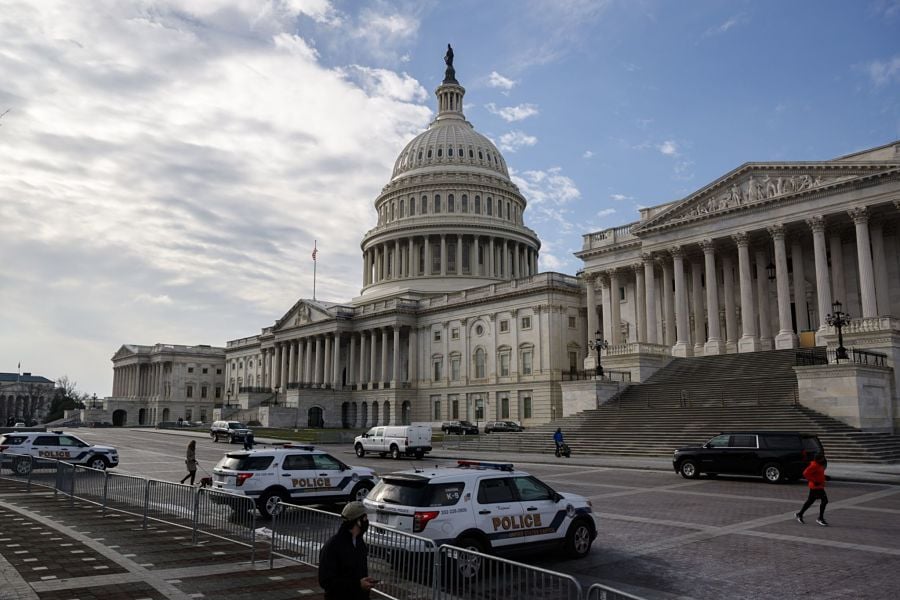

Legislation that would require corporations to release more information about their climate-related risks faces a difficult path through Congress but the measure does signal support at least from Democrats for a more muscular Securities and Exchange Commission approach to environmental social and governance disclosures.
Last week, Sen. Elizabeth Warren, D-Mass., and Rep. Sean Casten, D-Ill., introduced the Climate Risk Disclosure Act, which would direct the SEC to promulgate within two years rules that would mandate that public companies disclose greenhouse gas emissions and fossil fuel assets and how their valuation would be affected by climate change.
Under current law, ESG disclosures are voluntary. But the SEC has indicated over the last several weeks that it intends to step up its ESG oversight. In March, the SEC released a request for comment on climate-risk disclosures and also formed an enforcement task force focused on climate and ESG issues.
The bill introduced last week by Democratic lawmakers will have a tough time garnering the 10 Republicans required for the 60 votes needed to pass most legislation.
“It would be difficult to overcome a filibuster in the Senate, but that doesn’t mean [the bill] doesn’t serve an important purpose,” said Milan Dalal, co-founder and managing partner of Tiger Hill Partners, a government relations consulting firm. “This legislation, which is backed by progressives and moderates, provides political support to the SEC to usher in bolder [ESG] measures.”
Newly confirmed SEC Chairman Gary Gensler indicated in his Senate confirmation hearing in March that he supports expanded ESG disclosures. But Republicans were almost unified in their opposition to Gensler, partly as a result of to his ESG stance.
“Having political support from Democrats on Capitol Hill will ultimately strengthen his resolve to tackle this important issue,” said Dalal, a former Democratic aide on the Senate Banking Committee and former staff director of the panel's securities subcommittee.
Casten’s bill could be voted on soon by the House Financial Services Committee.
“This is a commonsense, market based-solution that is essential to protecting our financial system and the stability of the U.S. economy,” Casten said in a statement to InvestmentNews. “No matter if there’s a D or R behind your name, that’s something you should be able to support."
The financial panel will take up a roster of bills Tuesday, including one written by Rep. Juan Vargas, D-Calif., that would require companies issuing securities to make annual disclosures of ESG metrics and how they affect their long-term business strategy.
The number of Republicans voting for that bill and others during so-called markups by the House committee “could serve as a harbinger for potential Senate activity,” said a financial industry lobbyist who spoke on background to discuss the politics surrounding ESG bills. “My guess is that it is unlikely you will see any” GOP support.
But that isn’t stopping Democratic lawmakers from seeking backing for ESG legislation across the aisle in the narrowly divided House and Senate.
Rep. Andy Levin, D-Mich., intends to reintroduce in coming weeks bills that would promote sustainable investing by requiring retirement plan fiduciaries and other financial advisers to consider ESG factors in investment decisions and disclose how they use them.
A Levin staffer is optimistic about the prospects for the bills.
“I think there is growing realization of the need to incorporate ESG factors among many in the investment community,” said Meseret Araya, a Levin legislative aide. “ We believe it makes business sense and hopefully that can elicit support from all corners.”

The New Orleans-based 5th Circuit has sided the industry groups arguing the commission's short-selling rules exceeded its authority.

The deal will see the global alts giant snap up the fintech firm, which has struggled to gain traction among advisors over the years, for up to $200 million

Elsewhere, Osaic extended its reach in Knoxville with a former TrustFirst team, while Raymond James scored another win in the war for Commonwealth advisors.

Meanwhile, EP Wealth extended its Southwestern presence with a $370 million women-led firm in Santa Fe, New Mexico.

The recently enacted OBBBA makes lower tax rates "permanent," though other provisions could still make earlier Roth conversions appealing under the right conditions.
Orion's Tom Wilson on delivering coordinated, high-touch service in a world where returns alone no longer set you apart.
Barely a decade old, registered index-linked annuities have quickly surged in popularity, thanks to their unique blend of protection and growth potential—an appealing option for investors looking to chart a steadier course through today's choppy market waters, says Myles Lambert, Brighthouse Financial.
